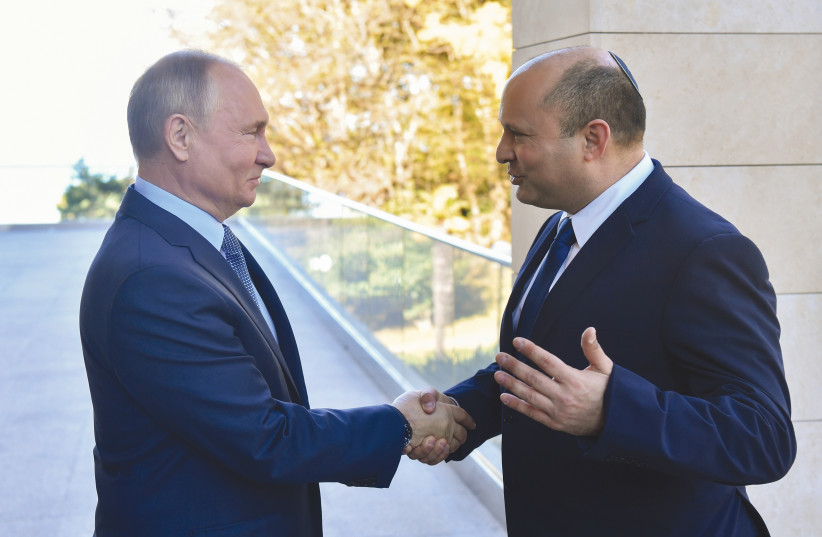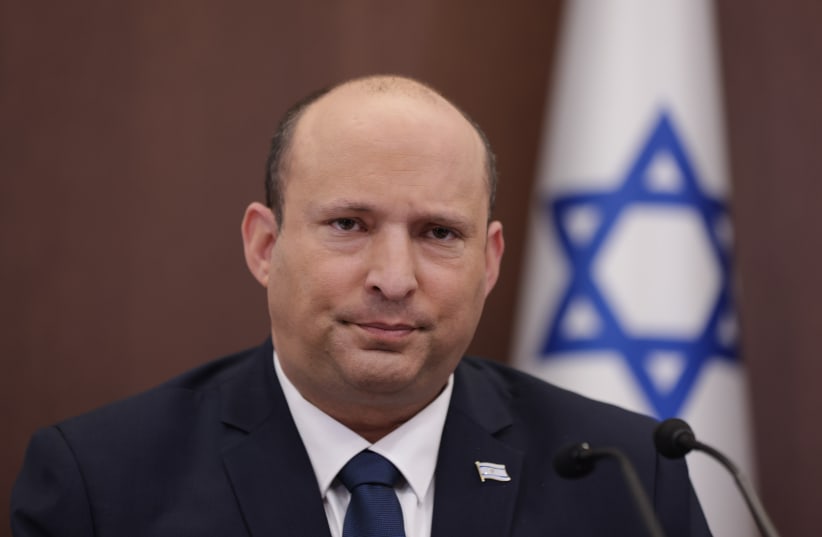Ukrainian President Volodymyr Zelensky asked Prime Minister Naftali Bennett to meet counterpart Vladimir Putin in Russia, Bennett said in a televised interview given to CNN's Christiane Amanpour on Wednesday evening.
The prospects of Russia's war on Ukraine ending soon are "not looking good," Bennett admitted, adding that Israel is willing to re-enter serious mediation efforts at Zelensky's request.
Bennett defended his and his government's stance on Russia, stating that Israel has "condemned Russian aggression many times" and voted for Russia's suspension from the UN Human Rights Council, in response to Amanpour's question on whether Israel has taken a strong enough stance against Putin's regime.
Bennett also praised Israeli aid given to Ukraine in military and humanitarian capacities, including the field hospital established in Western Ukraine. However, the prime minister did admit that "in order to mediate," he must remain in contact with Putin.


On recent violence in Jerusalem's Old City, Bennett defended the presence of Israeli forces on Temple Mount, saying it was a necessity to ensure Israel can "provide full freedom of worship to everyone in Jerusalem, including Muslims."
Bennett also defended the actions taken in response to the wave of Palestinian terror in Israel over the past month, saying security forces' operations and raids in the West Bank, especially Jenin, are "what any other leader would do."
"We have to learn to live together, that's my job," Bennett said, adding that Israel is "doing most of the job" due to the Palestinian leadership's, which he labeled as corrupt, incompetence.
Amanpour pressed the prime minister on settler violence, at which point Bennett took offense to the CNN interviewer's "attempt to create symmetry between a tiny minority" of extremist settlers to the terrorism inflicted upon Israel by Palestinian terrorist groups. Bennett also objected to Amanpour referring to the West Bank as an occupied territory, stating it should be called a territory "in dispute."
Amid the current crisis unfolding in his coalition, the government's stability is vital for Israel's security, Bennett said when asked whether his government's days are numbered. The prime minister lauded his government's diversity, saying the "experiment" is one that all members of the coalition want to see succeed.
However, the government's make up means "there will be bumps along the road," Bennett said, referring to MK Idit Silman's resignation from his role as coalition chairwoman and the decision by MK Mansour Abbas' Ra'am party to freeze its membership in the Knesset and the coalition.
Bennett addressed Abbas during his interview, calling for Abbas to stay committed to the "unique opportunity" given to Ra'am, adding that he hopes he "steps up to the plate" and to the Arab sector.
